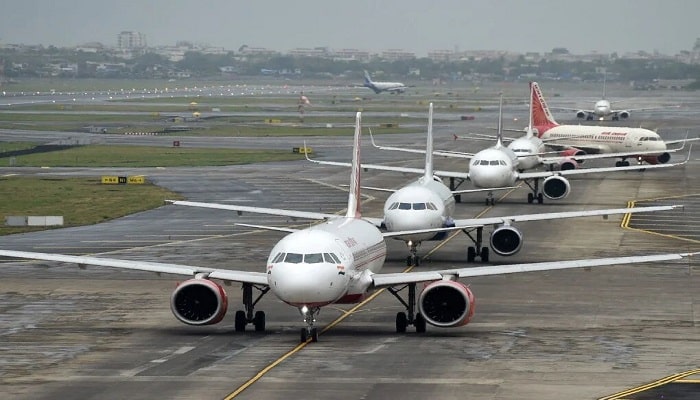PNN – In the last one week, more than 70 domestic and international flights of Indian Airlines have faced bomb threats, all of which have turned out to be false.
According to the report of Pakistan News Network from the Hindustan Times news website, Indian airlines this week faced a wave of false bomb threats that targeted more than 70 domestic and international flights.
These threats, which caused widespread disruption and forced emergency measures, were all false. However, airline officials and Indian authorities are trying to ensure the safety of passengers and investigate the sources of threats.
According to this report, Air India Express, Air India, Vistara, IndiGo and Akasa Air have suffered the most damage; Especially Air India Express, whose seven flights were bombed.
At least 2 Air India flights also received similar threats. An Air India flight from Mumbai to London was escorted to Heathrow Airport by a British Air Force fighter jet following a bomb threat, but security checks confirmed it was a hoax.
Six flights of Vistara, another major Indian airline, were also bombed, five of which were international routes to India, including Singapore, Frankfurt and Colombo.
A Vistara flight from Udaipur to Mumbai was also diverted to a remote berth on landing after a threatening note was found in the plane’s lavatory, prompting full security checks.
IndiGo, India’s largest airline, also reported threats to five of its flights, including two international flights to Istanbul. The airline confirmed that all passengers on the threatened flights were safely disembarked and the plane was inspected in accordance with security guidelines.
Akasa Air also received bomb threats on five of its flights, including on the routes to Bangalore, Guwahati and Mumbai, but all the planes were cleared after inspections.
The cost of false threats
Fake bomb threats against Indian airlines have taken a heavy toll on the logistics and operational costs of these companies.
Hoax bomb threats in airline operations are disrupting flights, which is why the Indian government is gearing up to take stringent measures to curb such incidents.
Indian Civil Aviation Minister Ram Mohan Naidu said the ministry is considering amending regulations to impose tougher penalties, including putting perpetrators of these threats on a no-fly list.
Currently, the Indian aviation community does not have specific regulations to deal with bomb threats from external sources, such as social media.
One of the most extreme threats occurred on October 15, after an Air India Boeing 777 en route from Delhi to Chicago was diverted to the remote Canadian town of Iqaluit due to a bomb threat. This plane with more than 200 passengers was stuck on the ground for about 84 hours and finally reached Chicago.
The airline was forced to charter an Air Force One aircraft to ferry the stranded passengers to their destination, adding to the company’s logistics costs.
According to the report, the cost of renting a Boeing 777 per day ranges from $17,000 to $20,000, and the total cost of the incident is expected to exceed 15 to 20 crore rupees ($1.8 million to $2.4 million).

